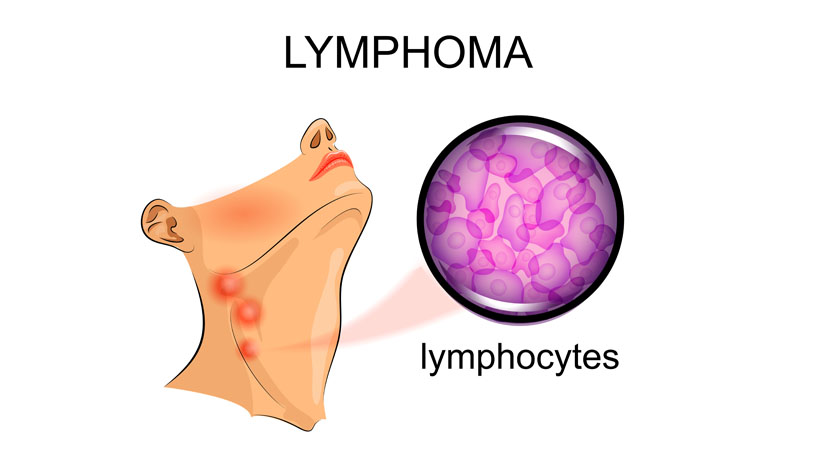Lymphoma, the cancer of the lymphatic system, is one of those conditions whose symptoms manifest silently; its warning signs are often so subtle that the condition can remain undetected for a dangerous period of time. The lymphatic system is an integral part of your immune system; it’s your body’s primary network for fighting germs, defending you from bacterial and viral infections. It’s important to be aware of the common warning signs of lymphoma to ensure a functioning immune system, and to be able to recognize early on if something’s amiss. Here’s a list of eight common warning signs associated with lymphoma.
Painless lumps in your neck, groin or armpits
This is the most common, and often the only, symptom that individuals with lymphoma experience. These lumps indicate an enlargement of the lymph nodes; they are often painless, and might not be immediately conspicuous, so they can be easily overlooked. While swollen lymph nodes are not always a sign of lymphoma, they are a hallmark symptom and should spur a checkup.
Weight loss
Significant and unexplained weight loss –– often 10 to 15 pounds over a period of a few months –– is another marker of lymphoma. For individuals with this condition, the rapid weight loss is often a feature of fast-growing lymphomas. The drop on the scale might also be due to your body’s extra energy expended on fighting the cancerous cells. If you’ve noticed a significant weight loss for no apparent reason, you could be exhibiting one of the subtle signs of lymphoma.
Fever
Do you have a fever that won’t seem to go away? A lingering or recurring fever is another symptom of lymphoma. In particular, fevers that don’t seem to be related to any other medical condition or infection should signal something amiss and warrant a checkup.
Excessive sweating
If you experience severe night sweats, waking you up drenched, you might be experiencing a warning sign of lymphoma. It’s important to note that these “night sweats” might also occur during the day.
Itchiness
One symptom common in individuals with Hodgkin lymphoma, one of the two main types of lymphoma, is intense itchiness with no apparent rash. It could occur on the hands, feet, lower legs or even the entire body, and can be disruptive to daily activity.
Loss of appetite
If you find yourself with a considerable and unexplained loss of appetite, you might be experiencing lymphoma growth in the abdomen. For some individuals, the resulting feeling of enlarged nodes in the spleen or liver is pain; for others, as the swollen organs press against the stomach, the resulting feeling might be a loss of appetite.
Weakness
Weakness in individuals with lymphoma is often caused by the cancer cells draining your body of its nutrients and energy. In some cases, if the cancer has spread to your bone marrow, the fatigue might be due to anemia, or a condition where the blood lacks enough red blood cells to successfully deliver oxygen throughout the body. If you feel abnormally fatigued, you might want to contact a healthcare professional and get screened.
Breathlessness
Lymphoma that develops in the neck or chest might obstruct the flow of certain vessels, and result in feelings of breathlessness. Individuals with this symptom might also experience some swelling in the face and neck. While breathlessness is, of course, not unique to lymphoma, the occurrence of any of these symptoms should prompt a checkup.
Sources:
https://www.verywellhealth.com/warning-signs-of-lymphoma-2252446
https://www.activebeat.com/your-health/lymphoma-symptoms-10-warning-signs-of-lymphoma/8/
http://www.cancerhelps.com/knowledge/top8warning.htm
https://www.mayoclinic.org/diseases-conditions/lymphoma/symptoms-causes/syc-20352638



